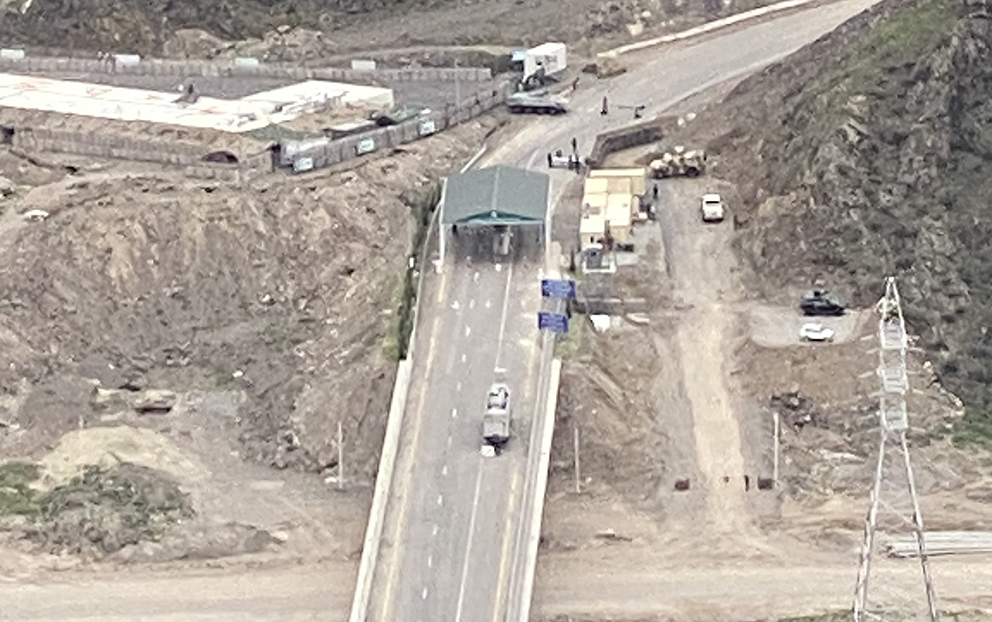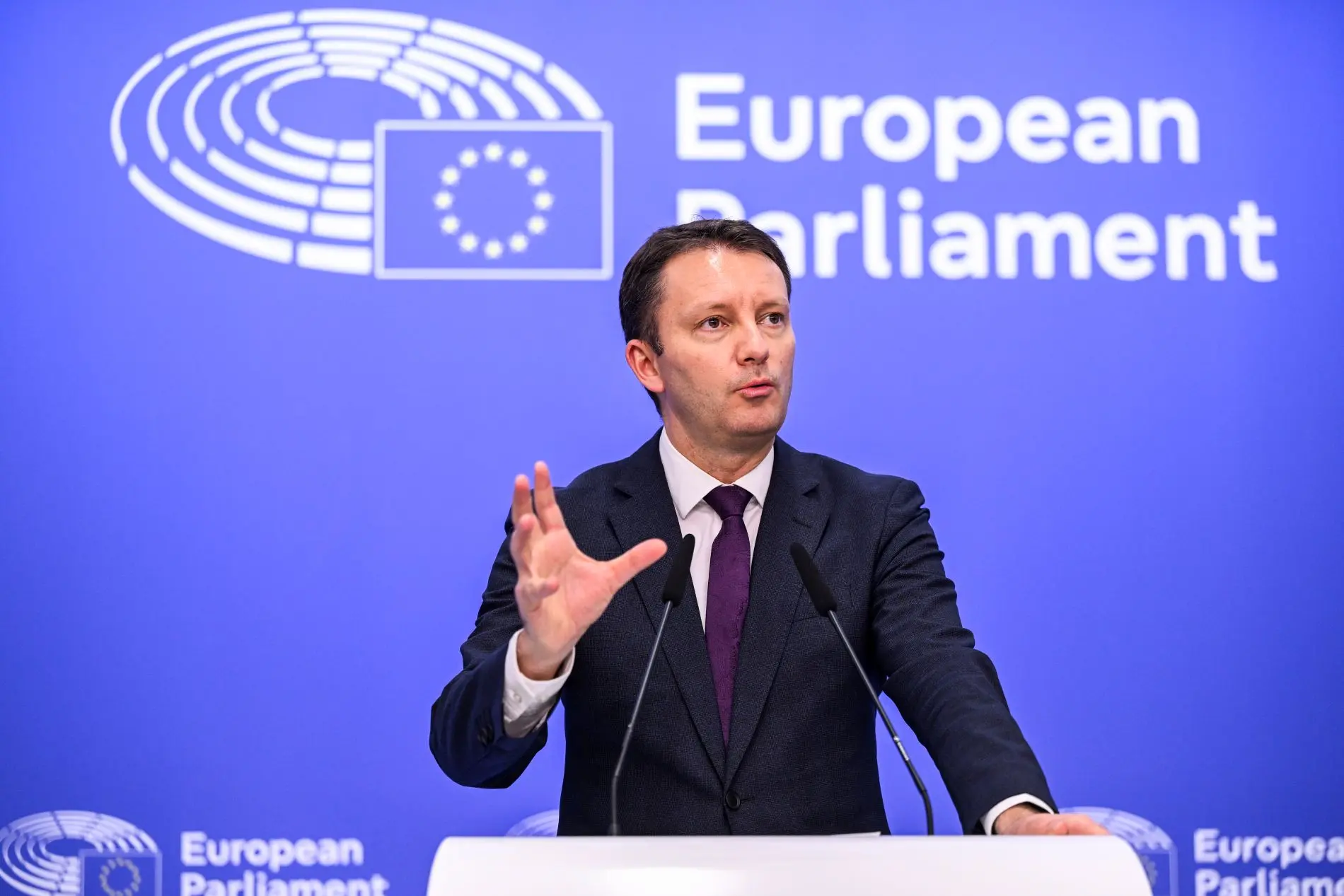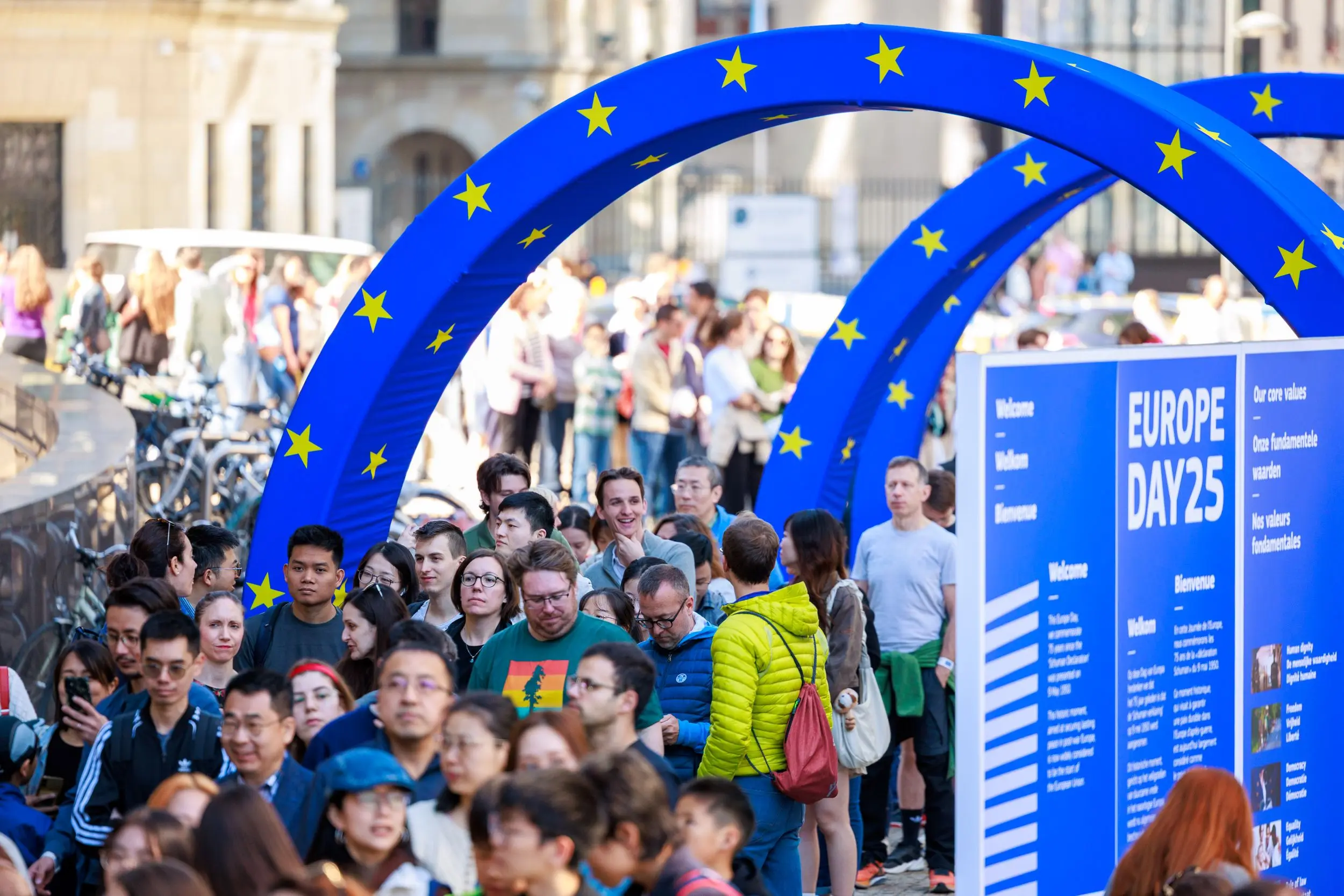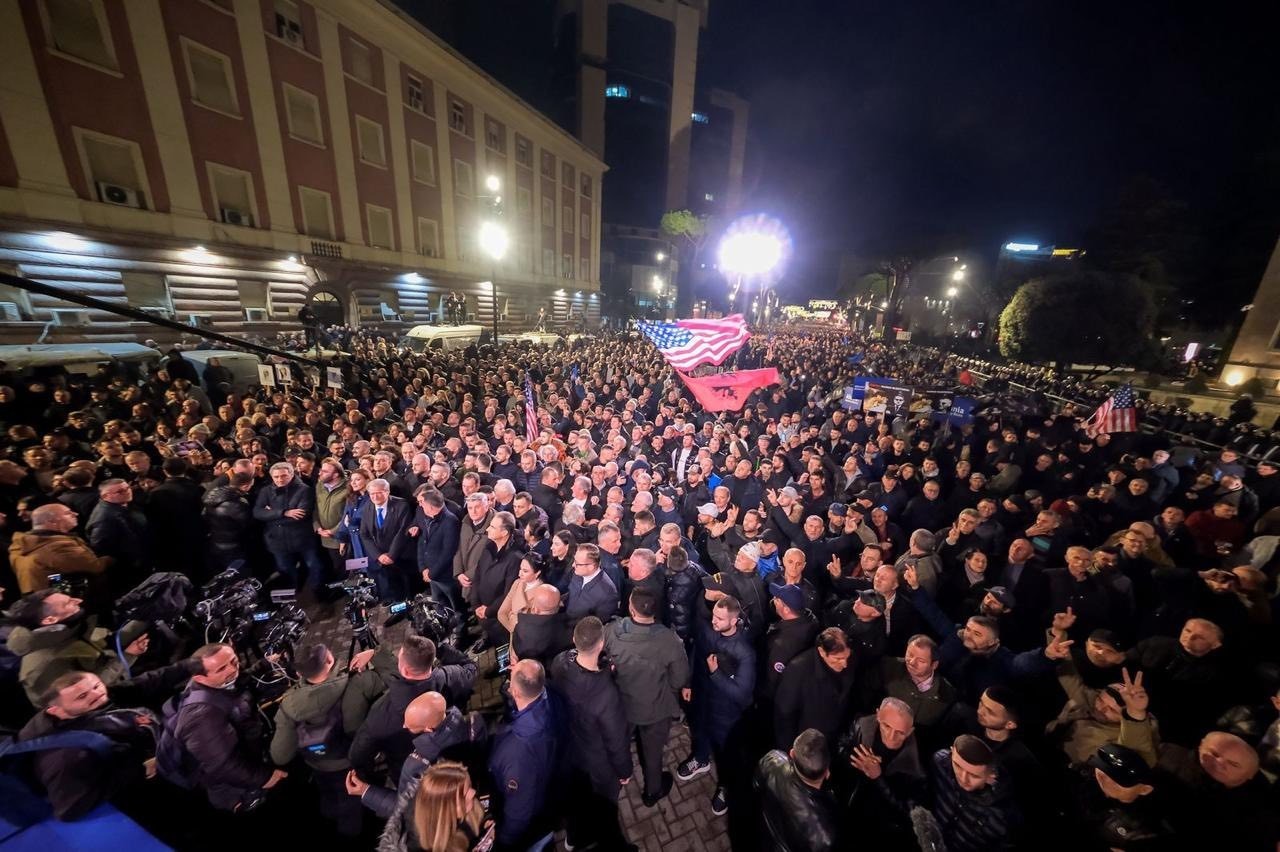Armenia and Azerbaijan at Odds Again on Key Highway After EU-Facilitated Talks
Despite recent diplomatic meetings Azerbaijan and Armenia are once again in a stalemate over the Lachin corridor, a 5km highway linking Armenia to Nagorno Karabakh. The blockade of this corridor by Azerbaijan is putting the inhabitants of Nagorno Karabakh in difficulty

Armenia-and-Azerbaijan-at-Odds-Again-on-Key-Highway-After-EU-Facilitated-Talks
Azerbaijani Checkpoint to the Lachin Corridor at the Hakari Bridge, viewed from Kornidzor, Republic of Armenia - Elisa von Joeden-Forgey/ CC BY-SA 4.0
Just two weeks after the 15 July EU-facilitated meeting between Armenian Prime Minister Nikol Pashinyan and Azerbaijani President Ilham Aliyev in Brussels, Yerevan and Baku find themselves once again in a standoff on the Lachin Corridor, the 5 km-wide highway that connects Armenia through Azerbaijan with the besieged former Nagorno Karabakh Autonomous Oblast (NKAO).
Since 12 December last year, the mainly ethnic Armenian-populated breakaway region has had this strategic artery through Lachin disrupted and restricted by Baku in continued attempts by Azerbaijan to have its territorial integrity not only restored but also recognised by both Yerevan and Karabakh’s de facto capital, Stepanakert. While Prime Minister Pashinyan says he is ready to do this, Karabakh’s de facto leadership continues to resist.
Another sticking point has been the insistence of Yerevan, Brussels, Washington D.C., and now Moscow that the ethnic Armenian community of Karabakh and official Baku need to engage in direct dialogue. Stepanakert continues to refuse to do so while so far unconfirmed reports indicate that on 30 July Baku rejected another planned meeting apparently scheduled for 1 August.
As a result, the imposition of an Azerbaijani border and customs checkpoint at the beginning of the Lachin highway has led to severe shortages of many imported food, hygiene, and fuel products. Meanwhile, the periodic halting of humanitarian aid convoys delivered by the International Committee of the Red Cross (ICRC) and Russian peacekeeping contingent have also resulted in severe shortages of medical supplies.
Though it is difficult to fully understand the situation on the ground with little independent or verifiable information filtering out, and social media still showing that restaurants in Stepanakert continue without restriction apart from a cap of 50 on individual group sizes when dining out, warnings of an impending humanitarian disaster nonetheless appear credible. Before mid-June, in addition to what is grown there, supplies had passed through.
With Azerbaijani social media sharing videos and photographs from Stepanakert’s restaurants, even the region’s human rights ombudsperson spread messages on social media requesting that Karabakh Armenians desist from posting images from their nights out. “Videos posted on social networks […] which do not reflect the dire situation […] are actively used by the Azerbaijani propaganda machine,” the request read. “[…] please refrain from sharing videos associated with a life of luxury.”
Indeed, most shops and markets are reportedly either bare or now totally empty. What has made matters worse this time has been the lack of fuel, making it close to impossible to distribute fresh produce from the villages to urban centres. Moreover, though bakeries are still functioning it has also been difficult to supply them with flour and also to distribute loaves when they are produced.
De facto Karabakh State Minister Gurgen Nersisyan also vowed to take action against price gouging and a black market for goods that has emerged. There is also increasing concern in Karabakh that Azerbaijan seeks to have the Lachin Corridor, as stipulated by the November 2020 trilateral ceasefire statement, replaced by its own alternative route for supplies via territory fully under its control.
Such concerns increased following the 15 July Aliev-Pashinyan meeting in Brussels when European Council President Charles Michel welcomed Baku’s offer to allow assistance from the formerly occupied city of Aghdam. On 19 July similar remarks were made by EU Special Representative for the South Caucasus Toivo Klaar and ten days later by EU High Representative for Foreign Affairs and Security Policy Josep Borrell.
However, the European officials also stressed, any route for humanitarian assistance from Azerbaijan proper to Karabakh via Aghdam should complement and not replace Lachin. Karabakh itself views any use of the additional route to be another attempt to integrate the region into Azerbaijan proper. Official Stepanakert blames Pashinyan for publicly stating that Armenia is ready to recognise Azerbaijan’s territorial integrity including Karabakh.
The EU, U.S., and Russia have called upon Azerbaijan to allow the resumption of all traffic via Lachin. Rallies were subsequently held in both Stepanakert and Yerevan calling for the same though the demonstration in the latter was poorly attended at just a few thousand people. Daily rallies, including outside the United Nations office, have also taken place in the Armenian capital though numbers have so far been small.
Those taking part also collected food stuffs and other items which they demanded the UN transfer to Karabakh. The UN has still yet to respond to the request though that is hardly likely. The protests did nonetheless push the Armenian government to action by sending its own aid convoy of 19 trucks carrying 360 tons of assistance to that section of the Armenia-Azerbaijan adjacent to the start of the Lachin highway and the Azerbaijani checkpoint.
On 27 July the convoy set off from Yerevan after first being checked by invited foreign diplomatic staff in the capital. Azerbaijan had already called the convoy a ‘demonstrative act of sabotage,’ hinting that it too would not be allowed through. At time of writing, the convoy is still parked in the village of Kornidzor and is likely to remain there for some time. The European Union Mission in Armenia (EUMA) is monitoring the situation.
On Saturday 29 July, however, the impasse on the Lachin Corridor was to escalate further as ICRC continued to transfer patients to and from Karabakh through Lachin when a 68-year-old resident was detained by Azerbaijani border guards. Among 15 patients traveling from Stepanakert to Yerevan, Vagif Khachatryan is accused by Azerbaijan of committing alleged war crimes in the first Karabakh war of the 1990s.
Baku says he has been transferred to a medical facility and ICRC has already visited him in captivity, including with a doctor. Causing outrage in Karabakh, de facto State Minister Nersisyan rallied dozens outside ICRC’s Stepanakert office. “We want you to note that you are unable to ensure the safety of any of the residents of Artsakh [Karabakh],” media quoted him as saying in a rare criticism of the international humanitarian organisation.
“We call for all concerned decision-makers to respect our strictly humanitarian mission,” the ICRC tweeted as medical evacuations and repatriations once again ground to a halt. “[ICRC calls] on the relevant decision makers to allow the ICRC to resume its essential humanitarian operations in the area,” it also said in a statement , stressing that it is unable to operate either through Lachin or Aghdam.
“Our humanitarian aid convoys are a lifeline for the population […]” ICRC’s regional director for Eurasia, Ariane Bauer, said. “With these convoys blocked, our concern is that the humanitarian situation will further deteriorate. We are most worried about those who cannot help themselves. The sick and people with chronic diseases are particularly at risk, as are the elderly, infirm and children.”
Armenia and Azerbaijan at Odds Again on Key Highway After EU-Facilitated Talks
Despite recent diplomatic meetings Azerbaijan and Armenia are once again in a stalemate over the Lachin corridor, a 5km highway linking Armenia to Nagorno Karabakh. The blockade of this corridor by Azerbaijan is putting the inhabitants of Nagorno Karabakh in difficulty

Armenia-and-Azerbaijan-at-Odds-Again-on-Key-Highway-After-EU-Facilitated-Talks
Azerbaijani Checkpoint to the Lachin Corridor at the Hakari Bridge, viewed from Kornidzor, Republic of Armenia - Elisa von Joeden-Forgey/ CC BY-SA 4.0
Just two weeks after the 15 July EU-facilitated meeting between Armenian Prime Minister Nikol Pashinyan and Azerbaijani President Ilham Aliyev in Brussels, Yerevan and Baku find themselves once again in a standoff on the Lachin Corridor, the 5 km-wide highway that connects Armenia through Azerbaijan with the besieged former Nagorno Karabakh Autonomous Oblast (NKAO).
Since 12 December last year, the mainly ethnic Armenian-populated breakaway region has had this strategic artery through Lachin disrupted and restricted by Baku in continued attempts by Azerbaijan to have its territorial integrity not only restored but also recognised by both Yerevan and Karabakh’s de facto capital, Stepanakert. While Prime Minister Pashinyan says he is ready to do this, Karabakh’s de facto leadership continues to resist.
Another sticking point has been the insistence of Yerevan, Brussels, Washington D.C., and now Moscow that the ethnic Armenian community of Karabakh and official Baku need to engage in direct dialogue. Stepanakert continues to refuse to do so while so far unconfirmed reports indicate that on 30 July Baku rejected another planned meeting apparently scheduled for 1 August.
As a result, the imposition of an Azerbaijani border and customs checkpoint at the beginning of the Lachin highway has led to severe shortages of many imported food, hygiene, and fuel products. Meanwhile, the periodic halting of humanitarian aid convoys delivered by the International Committee of the Red Cross (ICRC) and Russian peacekeeping contingent have also resulted in severe shortages of medical supplies.
Though it is difficult to fully understand the situation on the ground with little independent or verifiable information filtering out, and social media still showing that restaurants in Stepanakert continue without restriction apart from a cap of 50 on individual group sizes when dining out, warnings of an impending humanitarian disaster nonetheless appear credible. Before mid-June, in addition to what is grown there, supplies had passed through.
With Azerbaijani social media sharing videos and photographs from Stepanakert’s restaurants, even the region’s human rights ombudsperson spread messages on social media requesting that Karabakh Armenians desist from posting images from their nights out. “Videos posted on social networks […] which do not reflect the dire situation […] are actively used by the Azerbaijani propaganda machine,” the request read. “[…] please refrain from sharing videos associated with a life of luxury.”
Indeed, most shops and markets are reportedly either bare or now totally empty. What has made matters worse this time has been the lack of fuel, making it close to impossible to distribute fresh produce from the villages to urban centres. Moreover, though bakeries are still functioning it has also been difficult to supply them with flour and also to distribute loaves when they are produced.
De facto Karabakh State Minister Gurgen Nersisyan also vowed to take action against price gouging and a black market for goods that has emerged. There is also increasing concern in Karabakh that Azerbaijan seeks to have the Lachin Corridor, as stipulated by the November 2020 trilateral ceasefire statement, replaced by its own alternative route for supplies via territory fully under its control.
Such concerns increased following the 15 July Aliev-Pashinyan meeting in Brussels when European Council President Charles Michel welcomed Baku’s offer to allow assistance from the formerly occupied city of Aghdam. On 19 July similar remarks were made by EU Special Representative for the South Caucasus Toivo Klaar and ten days later by EU High Representative for Foreign Affairs and Security Policy Josep Borrell.
However, the European officials also stressed, any route for humanitarian assistance from Azerbaijan proper to Karabakh via Aghdam should complement and not replace Lachin. Karabakh itself views any use of the additional route to be another attempt to integrate the region into Azerbaijan proper. Official Stepanakert blames Pashinyan for publicly stating that Armenia is ready to recognise Azerbaijan’s territorial integrity including Karabakh.
The EU, U.S., and Russia have called upon Azerbaijan to allow the resumption of all traffic via Lachin. Rallies were subsequently held in both Stepanakert and Yerevan calling for the same though the demonstration in the latter was poorly attended at just a few thousand people. Daily rallies, including outside the United Nations office, have also taken place in the Armenian capital though numbers have so far been small.
Those taking part also collected food stuffs and other items which they demanded the UN transfer to Karabakh. The UN has still yet to respond to the request though that is hardly likely. The protests did nonetheless push the Armenian government to action by sending its own aid convoy of 19 trucks carrying 360 tons of assistance to that section of the Armenia-Azerbaijan adjacent to the start of the Lachin highway and the Azerbaijani checkpoint.
On 27 July the convoy set off from Yerevan after first being checked by invited foreign diplomatic staff in the capital. Azerbaijan had already called the convoy a ‘demonstrative act of sabotage,’ hinting that it too would not be allowed through. At time of writing, the convoy is still parked in the village of Kornidzor and is likely to remain there for some time. The European Union Mission in Armenia (EUMA) is monitoring the situation.
On Saturday 29 July, however, the impasse on the Lachin Corridor was to escalate further as ICRC continued to transfer patients to and from Karabakh through Lachin when a 68-year-old resident was detained by Azerbaijani border guards. Among 15 patients traveling from Stepanakert to Yerevan, Vagif Khachatryan is accused by Azerbaijan of committing alleged war crimes in the first Karabakh war of the 1990s.
Baku says he has been transferred to a medical facility and ICRC has already visited him in captivity, including with a doctor. Causing outrage in Karabakh, de facto State Minister Nersisyan rallied dozens outside ICRC’s Stepanakert office. “We want you to note that you are unable to ensure the safety of any of the residents of Artsakh [Karabakh],” media quoted him as saying in a rare criticism of the international humanitarian organisation.
“We call for all concerned decision-makers to respect our strictly humanitarian mission,” the ICRC tweeted as medical evacuations and repatriations once again ground to a halt. “[ICRC calls] on the relevant decision makers to allow the ICRC to resume its essential humanitarian operations in the area,” it also said in a statement , stressing that it is unable to operate either through Lachin or Aghdam.
“Our humanitarian aid convoys are a lifeline for the population […]” ICRC’s regional director for Eurasia, Ariane Bauer, said. “With these convoys blocked, our concern is that the humanitarian situation will further deteriorate. We are most worried about those who cannot help themselves. The sick and people with chronic diseases are particularly at risk, as are the elderly, infirm and children.”









